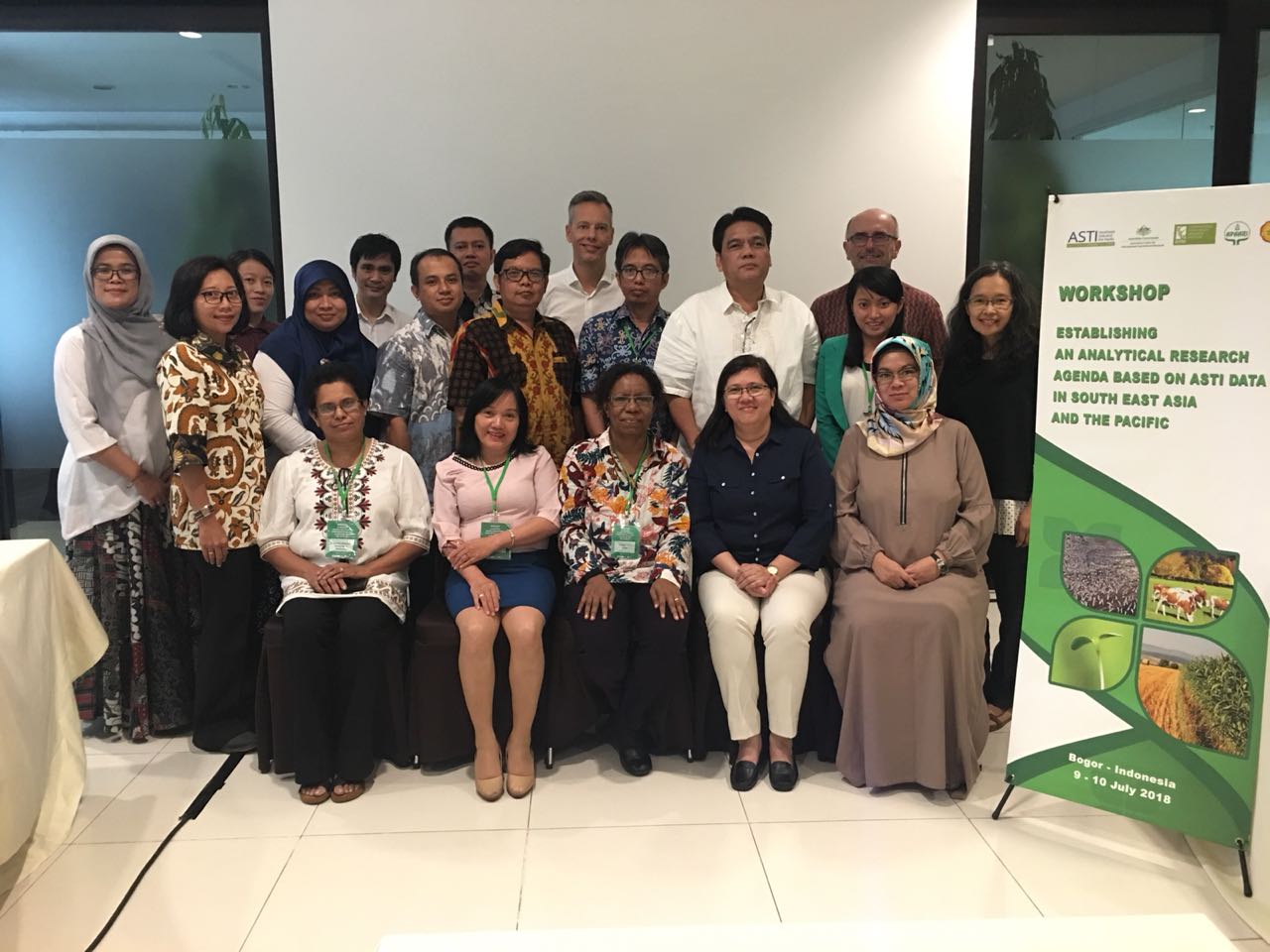APAARI-IFPRI Partnership in Southeast Asia and the Pacific

APAARI-IFPRI Partnership in Southeast Asia and the Pacific
IFPRI INFO: Conversation - collaboration - community
IFPRI INFO: Conversation - collaboration - community
Analytical workshop identifies research agenda for ASTI Indo-Pacific
September 25, 2018
Originally posted August 9, 2018 in the ASTI website blog.
In the Indo-Pacific region—the latest area of ASTI work, supported by the Australian Centre for International Agricultural Research (ACIAR)—one of ASTI’s strategic goals is to coordinate the implementation of an analytical research agenda focused on agricultural research investment capacities and policy developments.
In July, the Asia-Pacific Association of Agricultural Research Institutions (APAARI) and the International Food Policy Research Institute (IFPRI) co-facilitated a workshop in collaboration with the Indonesian Agency for Agricultural Research and Development in Bogor, Indonesia to identify priority user-driven research areas for the region and to design ways to transform the results of the research into stakeholder-friendly applications.
About 15 agricultural researchers and representatives from the Philippines, Sri Lanka, Vietnam, and Indonesia attended the workshop, which was held from 9-10 July 2018. These three countries are ideal to lead the discussion, as they all have established, in-country research agencies which support the analysis of agricultural data.
The workshop facilitated discussions around key agricultural policy issues facing the region and individual countries, as well as the related evidence that policy makers need, and the knowledge gaps to identify research priorities.
Although countries in the Indo-Pacific region vary widely in their economic development and agriculture sectors, common themes emerged, which were ultimately categorized into three broad groups:
(1) technical change and productivity,
(2) improved agricultural competitiveness, and
(3) science and technology innovation.
Within these broad groups, the workshop attendees identified specific policy issues, targeted goals for the analysis, and key research questions for selected countries. For example, for researchers and representatives from Indonesia and the Philippines, there is a clear priority for research on the impact of new technologies on staple productivity. For representatives of Vietnam and Sri Lanka, on the other hand, promoting and improving the efficiency of science and technology systems is a priority research area.
Next steps for the analytical team include establishing a common analytical framework, determining capacity needs, and setting up an implementation plan with research partners. Implementation of the research agenda will start next year, as the collection of key ASTI indicators in the 13 Indo-Pacific countries wraps up. With the solid starting point achieved at this workshop, the Indo-Pacific region will soon benefit from new policy-relevant analysis to boost agricultural productivity, competitiveness, and technical innovation in the region.


